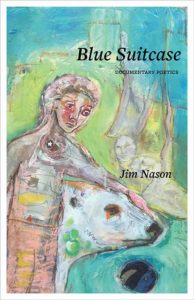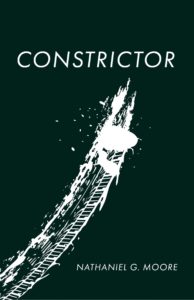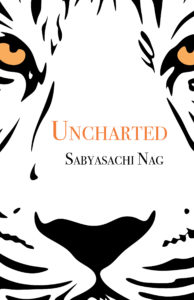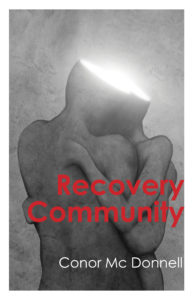W e at Mansfield Press are very pleased to see that novelist Dave Williamson has reviewed Sarah Dearing’s third novel, The Art of Sufficient Conclusions, for Prairie Fire‘s online review journal.
The Art of Sufficient Conclusions
by Sarah Dearing
Toronto: Mansfield Press, 2012, ISBN 978-1-894469-78-4, 222 pp., $19.95 paper.Reviewed by Dave Williamson
In her unconventional new novel, Toronto’s Sarah Dearing presents Abigail Strafe, an articulate ex-teacher in her late thirties who is seductive both intellectually and physically. Abby is the kind of first-person narrator who needs only to whisper in your ear and you’ll follow her anywhere. She defines herself by what she is not: “married, patient, alone or lonely” (14).
Abby is hardly monogamous, but her most frequent bed-partner is scientist Julian Sherwood, and she is currently helping him with his book on genetics. Their work takes them to London, England, where Abby will use some of the time to delve into her father’s past. He died when she was not quite ten but he apparently had an eventful youth: he was not only a boy actor in English movies but also a model for an accomplished sculptor.
Here is Abby’s impression of London:
Try as I might to be the chipper sport, chin up, hear hear, an undeniable melancholy washes over me upon arrival. Some might blame it on jet lag, grey skies, rain or fog. They’d be wrong. The city’s vastness exhausts me – the very thought of it—knowing I must go deep underground to use the tube, where seas of unhappy strangers surge in and out, each swell threatening to pull me down with the undertow of their collective misery. (43)
The title of Dearing’s novel is based on a lovely quotation by English writer Samuel Butler: “Life is the art of drawing sufficient conclusions from insufficient premises.”
Abby’s life could be seen in just that way. She craves information about her father and will grasp at anything she can track down in London (her experiences in the library are particularly funny). She wishes human relationships could be less hit-and-miss; it would be helpful, she believes, “if we were provided with a genetic map of ourselves, printed out and dispensed at the age of majority. After careful study for decisions about personal development, education, career goals or living in the fastest lane possible, we could then provide the thing as background to those who contemplate loving us.” (14)
This would eliminate the “time-wasting courtships” that lead only to a revelation that you have chosen another incompatible personality. “Everyone could have a secret decoder ring so there’d be no unpleasant surprises, and testing kits could be available on drugstore shelves, next to the condoms, to shield against genetic misrepresentation.” (14)
One could regard Abby’s own relationships as case studies. Her conversations with Julian and with Martin Glass, the “Philosopher of Science and Culture” she meets through Julian in London, are intelligent, edgy and funny in presenting her whole philosophy of heterosexual life. Here is a snippet from one of her chats with Martin:
“You have a better body than many twenty-somethings in this country.”
“You haven’t seen it naked. Tissue paper skin and spider veins. My ass disappeared last year.”
He rolls his eyes. “And what about intimacy?”
“It’s ultimately suffocating.”
“I now know why you and Julian get along so well. Don’t you crave it, even a little?”
“Sure, but less and less as time goes on. It doesn’t really work for me. I’ll take the physical any day, but the emotional…not when it becomes work.”
“You must scare a lot of men away.”
“Maybe, but why should I be the vulnerable one?”
“Men enjoy the role of protector.”
“Well, they haven’t done a superlative job in my case. I prefer to protect myself.” (128-9)
The verbal interplay is so enjoyable that you wish it would go on, maybe at the expense of her quest for details about her father. But the insight into her father’s youth, some background on the man who employed him, and a taste of the times in which they lived, are intriguing in their own right, and presented through letters and articles from the period.
The back-cover blurb and Dearing’s notes indicate that Abby and her father are based entirely on Dearing and her own father. Many of the materials quoted are taken directly from existing archives. In this sense, then, the interweaving of fiction with historical documents and real-life scientific facts and experiments make this what the blurb calls “a genre-bending chronicle of one woman’s obsession with the slippery nature of truth.”
But in no way does this detract from Sarah Dearing’s skill and talent as a fiction writer. She has proven herself with two previous novels, the delightful The Bull is not Killed (1998) and the bestselling Courage My Love (2001). Her good-natured stimulation of both the intellect and the libido make The Art of Sufficient Conclusions a must-read.
(Dave Williamson is a Winnipeg writer whose latest novel is called Dating.)




























